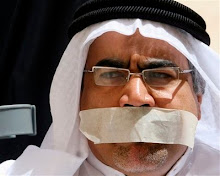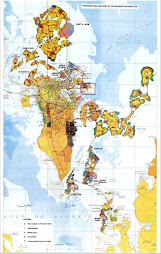Bahrain sets up rights watchdog amid criticism
Web posted at: 5/14/2010 8:19:22
Source ::: Reuters
MANAMA: Bahrain, under pressure to improve its human rights record, is creating a national watchdog, but some activists cast doubt on its independence.
The Gulf Arab island kingdom said last year it would establish the organisation, which would draft a national rights strategy and advise on new laws as well as receive complaints.
Majority Shia Bahrain, a key Western ally that is home to the US Fifth Fleet, is ruled by a Sunni dynasty, and its Shia population complains of discrimination in jobs and services, accusations government officials deny.
Bahrain has also come under fire from international human rights groups for the abuse of detainees during interrogations, internet censorship and over the working conditions of thousands of Asian labourers.
Representatives to the watchdog, appointed by the king last month, were to meet to discuss steps to get the organisation off the ground amid criticism the members were too close to the government.
Seven independent Bahraini rights groups complained that over half of the watchdog’s 20 members were either government officials or current or former members of Bahrain’s upper house of parliament whose members are appointed by the king.
The remainder were mostly from government-backed rights groups or were linked to the state, they said in a statement.
“Overall, the composition is neither independent nor pluralistic and the institution is expected to be biased towards its patron as time will certainly show,” the rights groups said.
APPOINTED BY KING
The rights groups, including the human rights section of mostly Shia political movement Haq, said they considered the watchdog a government-backed body and would continue to call for an independent organisation.
The groups have said the government was backing a number of human rights organisations while ignoring concerns of independent groups with the purpose of countering what it sees as Shia criticism of the government.
Bahrain, which regularly sees night-time battles between young protesters in Shia villages and security forces, has been accused by rights groups of coercing confessions of involvement in violence from those detained during protests.
Government officials deny there is torture in Bahrain and have said the government would investigate the torture claims made by the US-based rights group.
“Bahrain very much wants to portray itself as a strong advocate of human rights, but the behaviour on the ground leaves a whole lot to be desired,” said Joe Stork, Human Rights Watch deputy director for the Middle East and North Africa.
Stork said it was too early to judge how independent the new body would be.
“The fact that somebody is a shoura council member, or used to be, doesn’t necessarily mean much. An official is in a different position, it seems to me,” he said.







